Herbs are great for humans as well as animals. They boost our immune system; enhance the health of our skin. They have the same great effect on animals and in addition, they also eliminate fleas, help their digestion and get rid of worms.
If you have outdoor cats, they spend a lot more time in the garden than you, it’s a great idea to dedicate a small area of your garden and create an herbal place for your pet, and they will truly enjoy it. We can plant herbs that we can use in our everyday life and that your cat will love and in addition to enjoying them, they also are very beneficial to your pet.
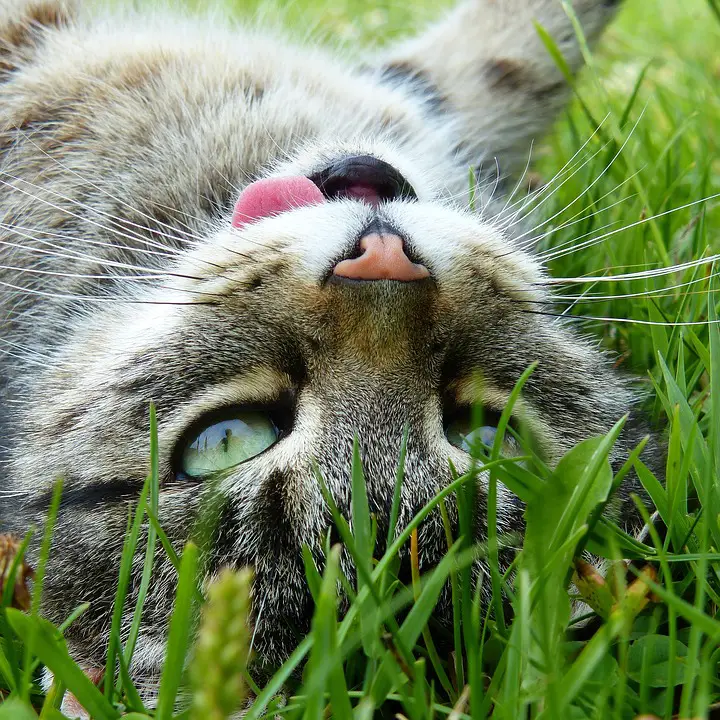
In designing this garden you should not only choose all different types of herbs to plant but consider creating a place that your cat would love to play and enjoy spending time there. Below is a list of some great choices to consider while planning this herbal retreat.
- Herbs that the cats enjoy eating and are very safe and good for them.
- Herbs that will provide shade for them, the best ones are ones that grow large leaves or ones that grow into small bushes.
- Herbs that have medical values.
- Also, don’t forget to put out a good size wood log, so your cat can jump thru, play or use it as a scratching post.
HERBS THAT CATS WILL ENJOY
Cocksfoot (Dactylis glomerata) also known as cat’s grass is a great plant for your cat to enjoy. Spartina Crested is another great grass choice for your feline. Cats love to rubbing against them. The grasses contain nutritional components that are very beneficial for their digestive system. A lot of cats also likes Catnip (Nepeta Mussinii) and also another version of catnip called “Alba” which contains white flowers, is great for chewing.[1]
HERBS THAT PROVIDE SHADE
Two great choices to create a shady area for your pets are Grass and Rosemary. These plants keep the fleas away from the animals. You can boil the herb for a few minutes, let it cool, drain the liquid, put it in a spray bottle and spray your pet all over. You can also use the solution to bathe your cat. Some other herbs that are also great for shade and good for cats are oat grass, peppermint grass, and catnip right. Remember to keep your cats from eating.
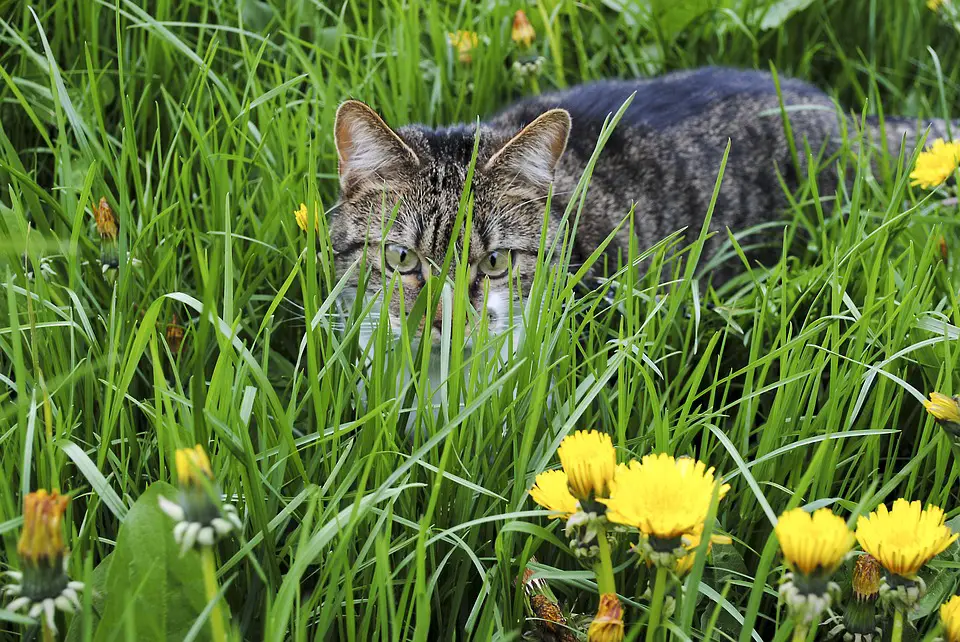
As Dr. Marie states, “Lavender plants are not toxic to dogs and cats. Any plant, however, if it is eaten, has the potential to cause some mild stomach upset (i.e. cramping, vomiting, diarrhea). For that reason, I wouldn’t encourage any eating of the plant. But, if a small amount did become ingested I wouldn’t worry about it.”[2]
HERBS THAT HAVE MEDICINAL VALUES
There is so many of them and the best thing to do is to choose the herbs that will benefit your cat the best. You need to be very careful using herbs for medical purposes for humans as well as animals. It’s always a good idea to consult with your trusted veterinarian before you start treating medical conditions with herbs. There are a lot of great herbs like parsley, Hydrocotyle Vulgaris, borage or yarrow that will boost your cat’s immune system and there are very safe to give them once a week with food.[3]
- Digestion and anxiety
Herbs like dill, peppermint are great for digestion, they are also wonderful for cats with anxiety, and they help to come them down. Both of these are very safe for your pets.
- Arthritis and Joint problems
Arthritis and joint problems are illnesses that we usually see in older animals, there are few wonderful herbs listed below that you can mix a small amount with your cat’s food and give them daily, also very safe and great for them. Feverfew, celery, parsley, common comfrey and yarrow.[4]
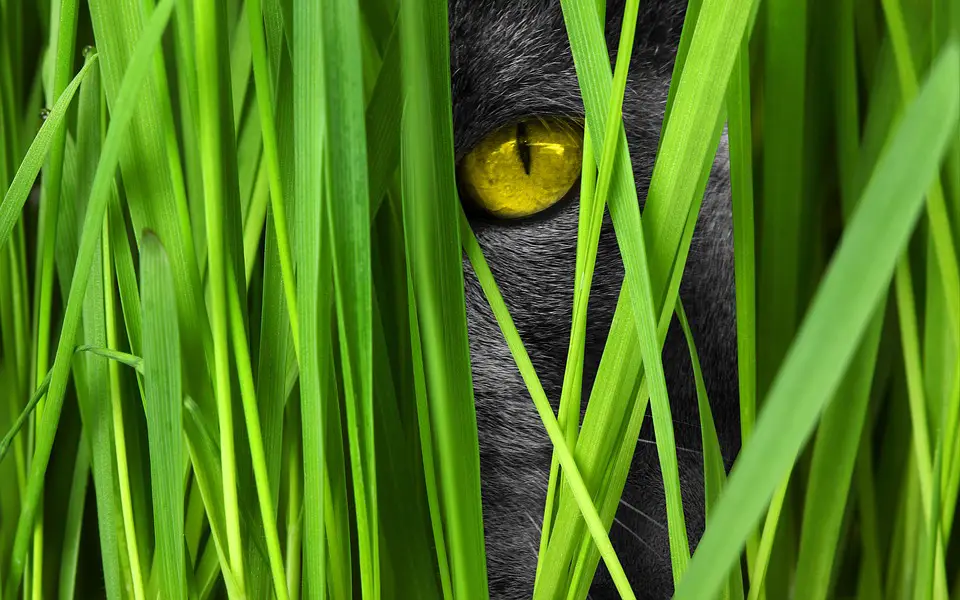
Worms
If your cat has worms you can cut up some fresh thyme, and yarrow, mix it with their food and give it to a couple of times a week.
Herbs that are great for your cat’s skin and fur are thyme, English marigold, chamomile, and Gotu kola. For best effects, you can use them internally as well as externally. Boil the herbs in water, transfer the liquid to spray bottle and apply to the affected area of the skin since the liquid is not as thick as creams, most likely they won’t lick it off.
Remember that a lot of these herbs are annual plants, which means that they will come back year after year. Once you plant your garden, just have to trim the plants if they overgrow and add few annual herbs and you are good to go for another season.
If you don’t have a yard and an outdoor garden or if you have an indoor cat, great idea is to create an herbal basket inside your house. Choose 3-4 different herbs, hanging basket ( you can’t put it on the floor until the herbs grow big enough to fill the basket if they are small,most likely the cat will destroy them and they won’t grow) and organic soil. Plant the herbs, water daily, hang it in a place that the cat won’t be able to reach. Once our basket is full of herbs, take it down and let your cat enjoy it.
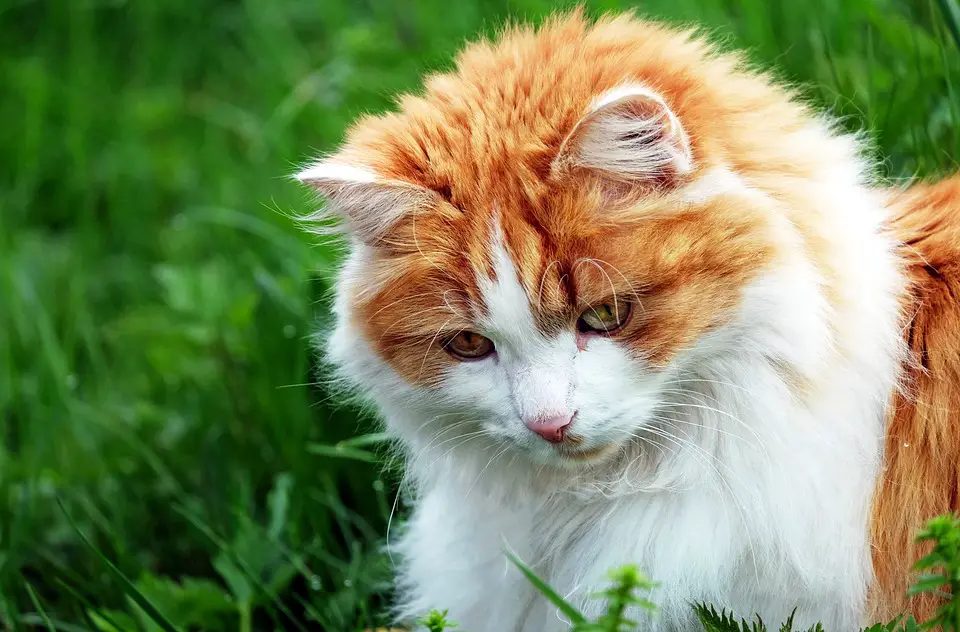
Note: Excessive use of any of these plants will lead to complications. Be sure to watch your cat and make sure that everything is used in moderation. Some of these plants are great for your cat’s skin and fur but should not be ingested. Be sure to only feed your cat the plants that are specifically indicated that can be ingested and those that can’t. Again, these are just remedies and should not be used on a daily or even weekly basis. Remember these are just suggestions. Talk to your local veterinarian for reliable natural health remedies.
Sources:
https://articles.latimes.com/1992-06-27/home/hm-758_1_cat-food
https://www.askavetquestion.com/answer_np.php?id=3857-lavender-plant-bad-for-dogs-and-cats
https://www.petmd.com/cat/wellness/evr_ct_herbs
https://www.humanesociety.org/news/magazines/2012/01-02/how_does_your_cat_grass_grow.html
https://www.christinedemerchant.com/plants_cat_like.html
Stein, D. (2004). The Natural Remedy Book For Dogs & Cats. New Delhi, India: Healthy Harmony.
Pitcairn, R. H., & Pitcairn, S. H. (2005). Dr. Pitcairn’s Complete Guide To Natural Health For Dogs & Cats. Emmaus, PA: Rodale.
References:
[1] petmd.com
[2] askavetquestion.com
[3] spca.org
[4] latimes.com
We strongly believe that cats should be given access to the greens they crave and that by doing so will enrich and enhance their lives.
Credits: This is a guest post kindly submitted by Mira Alicki from Forever in My Heart
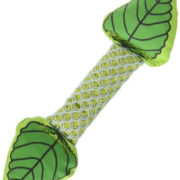
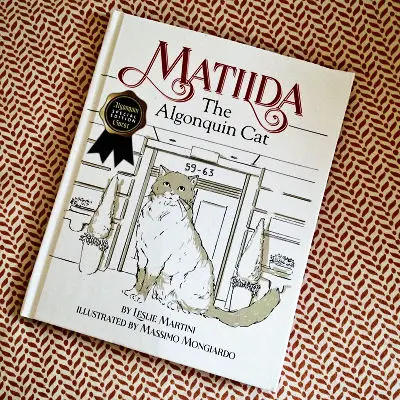
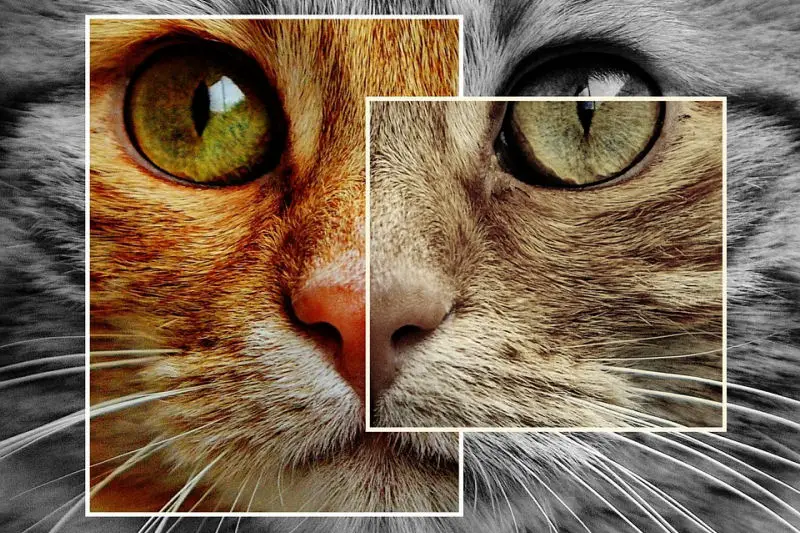

Rosemary causes seizures in cats and dogs. Surprised you said to spray you’re cat with them- they are also in some pet foods- hence the increase in peoples pets dogs/cats etc having seizures. NEVER use rosemary in food or on the pets fur which they lick.
Correction- annuals live only one season, perennials are those that come back year after year.